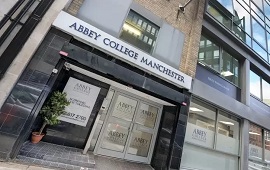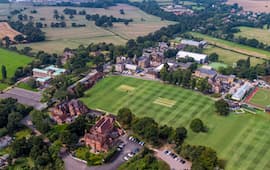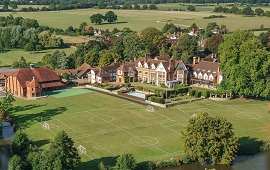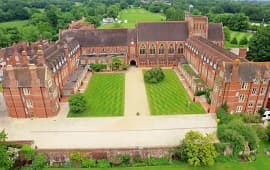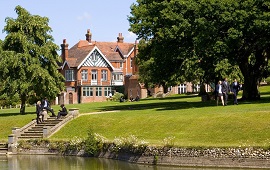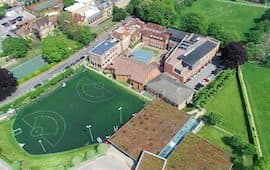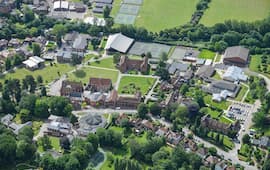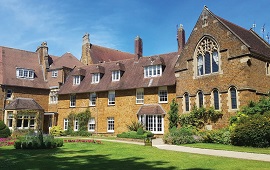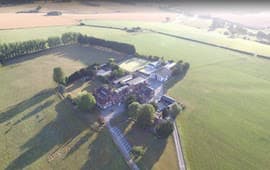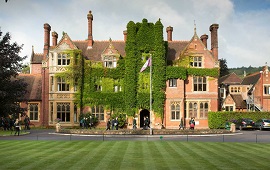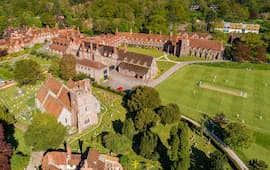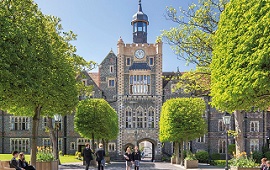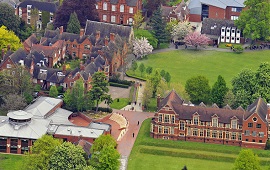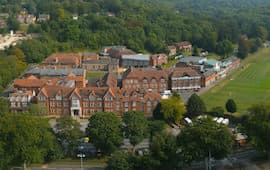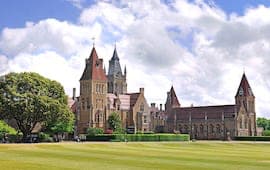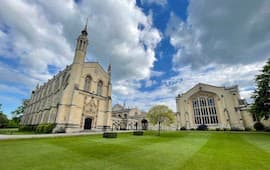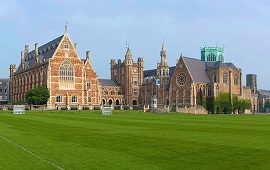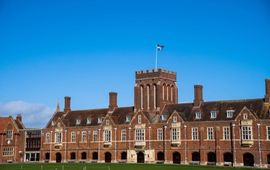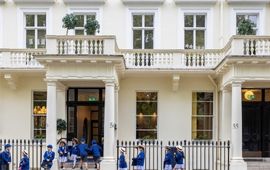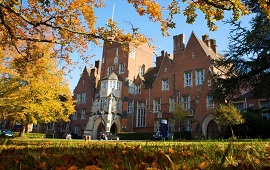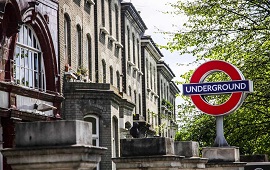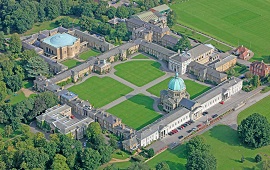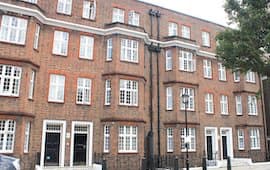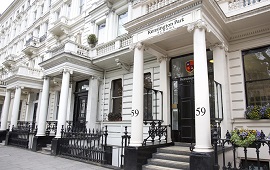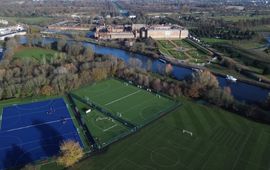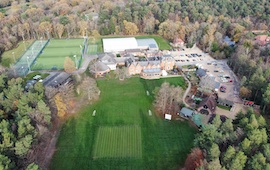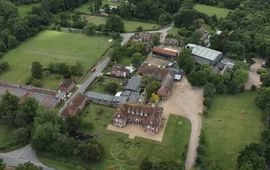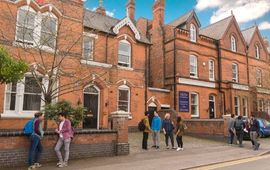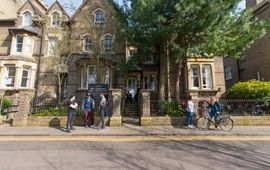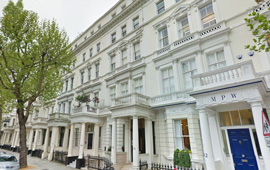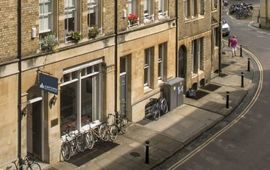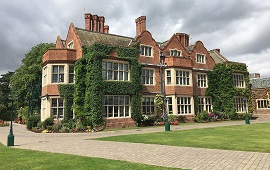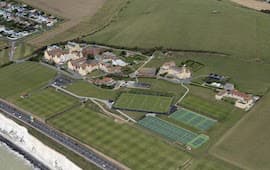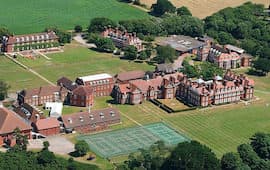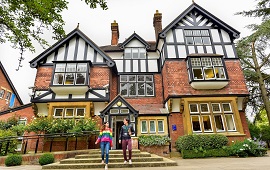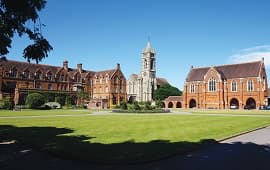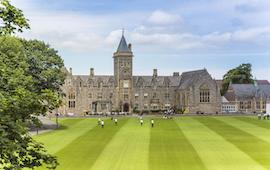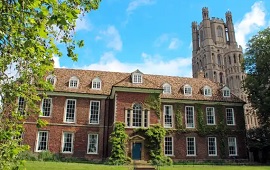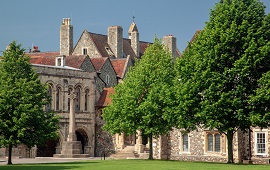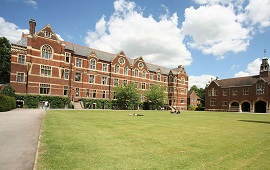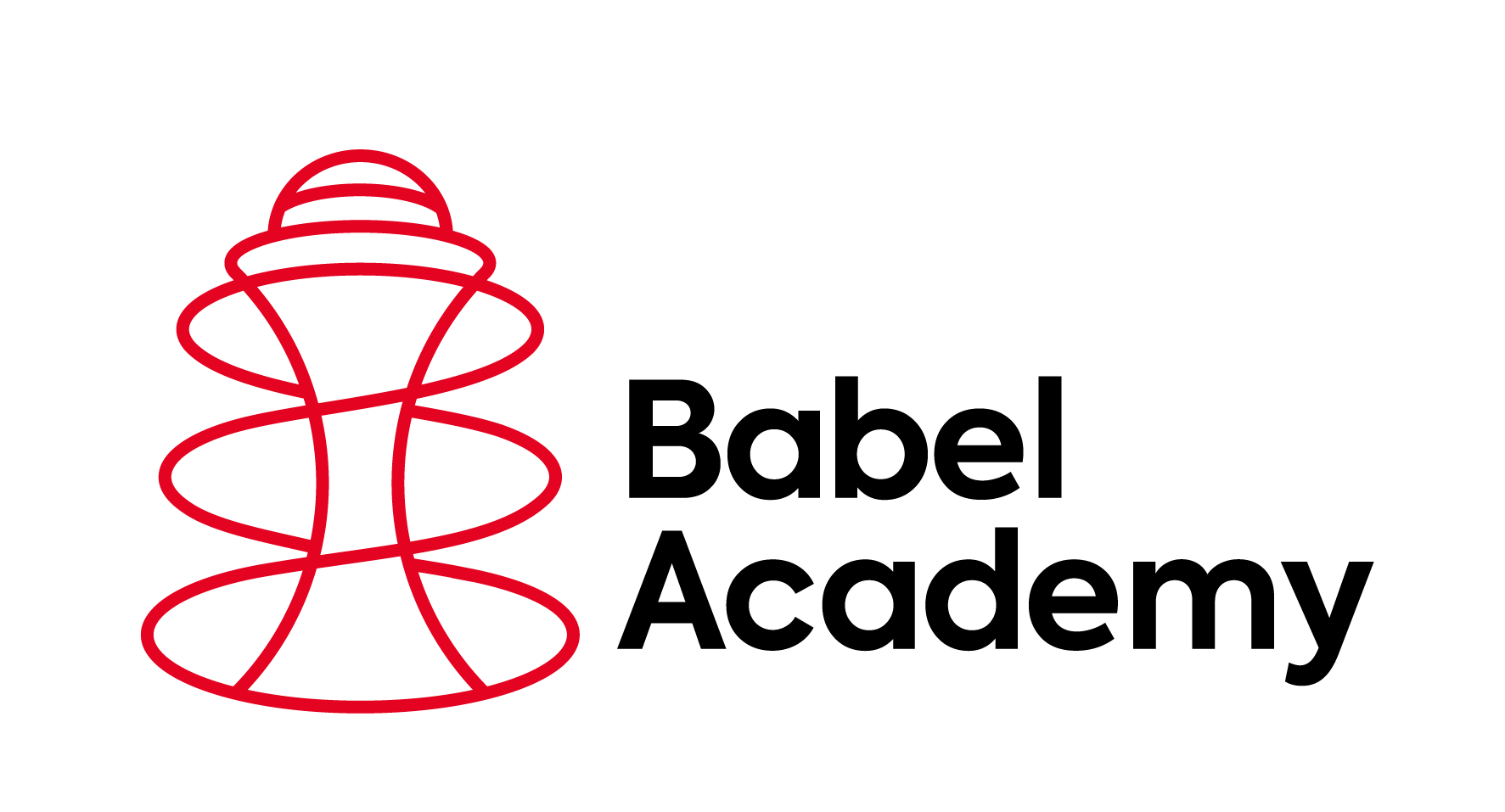
Before starting your research on UK high schools, you can find everything you need to know here.
High School Education in the UK
• UK Education System
• Duration of High School Education in the UK
• Diploma Degrees in UK High Schools
• Options for UK High Schools
• High School Education and Accommodation in the UK
• Entrance Exams for UK High Schools
• Application Documents for UK High Schools
• Best High Schools in the UK
• High School Prices in the UK
• High School Scholarships in the UK
• Equivalency for UK High Schools
• Visa Procedures for High School Education in the UK
• High School Education in the UK with Global Overseas Education Consultancy
Every parent dreams of their child studying at the best universities in the world or graduating from the best departments. Especially in recent years, the pressure of our changing education system has not only concerned students but also their families. As a result, many families are planning for their children to receive their education abroad from high school onwards and researching the best country and school choices for their child.
Undoubtedly, UK high schools are among the preferred countries for overseas high school education. With its world-leading education system, hosting some of the most respected educational institutions globally, and its distance from Turkey, the UK is the first choice for students and parents who want to pursue high school education abroad. Of course, there are many different reasons and advantages to receiving high school education in the UK.
Here are the top 7 reasons why you should consider high school education in the UK!
Why High School Education in the UK?
1) Gateway to World Universities: Hosting prestigious universities like Oxford University and Cambridge University, the UK has 10 more British universities listed in the “Times Education Higher” list of the world’s top 100 universities. Students who successfully complete their high school education in the UK not only have the opportunity to study in the UK but also in many other countries around the world.
2) Academic Diversity and Targeted Curriculum: Students studying high school education in the UK are offered a variety of diploma degrees recognized worldwide. Alongside the GCSE and A-Level programs in the UK education curriculum, internationally recognized programs such as IB (International Baccalaureate), American Diploma Programs, Advanced Placement (AP), and BTEC (Business and Technology Education Council) are among the most popular programs offered in the country. Students studying in UK high schools participate in programs tailored to their goals, focusing on knowledge rather than rote learning.
3) International Interaction and New Discoveries: While studying high school education in the UK, you have the opportunity to make friends from many countries around the world and get to know new cultures. Additionally, by exploring the breathtaking cities and structures of the UK, you will have unforgettable travel experiences.
4) Encouragement to Develop New Skills with Excellent Campus Facilities: Students studying at the excellent campuses of UK high schools are encouraged not only to develop their academic skills but also to improve themselves in arts, sports, or social subjects.
5) Chance to Graduate from University in 3 Years!: For students who complete high school education in the UK, undergraduate programs last for 3 years. Additionally, unlike universities in other countries where it takes 4 years, students become graduates in 4 years instead of 4 years by studying for 1 more year. (Except for medical, dental, and architecture departments)
6) Education in the Birthplace of English: During high school education in the UK, students in the birthplace of English do not disconnect from English and have no difficulty in adapting to the country and its people. The fact that the UK is one of the countries with the largest student population in the world is also very appealing.

**Education System in the UK**
The United Kingdom, consisting of 4 countries – England, Scotland, Wales, and Northern Ireland – mandates education starting from age 5 and continuing until age 16.
Before university education, the UK education system comprises a total of 5 Key Stages, with the first 4 being compulsory and the 5th stage serving as further education years, acting as a bridge for students aspiring to attend university. To summarize these stages:
• **Key Stage 1 (Primary Education 1):** Mandatory primary education years for students aged 5-7.
• **Key Stage 2 (Primary Education 2):** Mandatory primary education years for students aged 7-11.
• **Key Stage 3 (Secondary Education 1):** Mandatory secondary education years for students aged 11-14.
• **Key Stage 4 (Secondary Education 2):** Mandatory secondary education years for students aged 14-16.
• **Key Stage 5 (Further Education):** Academic or vocational education years for students aged 16-18. While students aspiring for university education continue with academic programs like A-Level, IB, or American Diploma, those not pursuing university education can opt for vocational/technical programs like BTEC.
• **Higher Education:** Encompasses undergraduate and postgraduate education for students aged 18 and above.
**Duration of High School Education in the UK**
High school education in the UK differs from that in Turkey.
For Turkish students seeking high school education in the UK, the duration is typically 4 years. Turkish students can obtain a UK high school diploma by studying for 4 years, or they can complete the last 3 or 2 years to obtain the diploma. While it’s possible for Turkish students with strong academic skills and English proficiency to graduate by studying only the final year, this is challenging and unlikely.
For Turkish students, the first 2 years of high school education in the UK begin with GCSE education, which corresponds to the last 2 years of compulsory education in the UK.
Upon successfully completing the GCSE program, students proceed to “Key Stages 5,” which are the advanced education years. These years constitute the final 2 years of high school education, entirely focused on preparing for university. Students can choose to continue with academic programs like A-Level, IB, or American Diploma, or complete their high school education by enrolling in vocational/technical programs like BTEC. Students aspiring for university education must continue with academic programs.
So, what do GCSE, A Level, IB, American Diploma, and BTEC mean?
**Diploma Degrees in UK High Schools**
• **GCSE (General Certificate of Secondary Education)**: GCSE is awarded at the end of compulsory education in the UK, typically after 11 years of schooling. It’s recognized internationally as a high school qualification and serves as a gateway to further academic education in the UK. The GCSE program covers various subjects, with English, Mathematics, and Sciences being compulsory.
• **A Level (Advanced Level)**: A Level programs are a part of the UK education system. Introduced in 1951 by the University of Cambridge, A Level programs are sought after by prestigious universities worldwide. A Level programs span the final 2 years of high school education, with students typically aged 16 and above. Students study subjects relevant to their desired university courses and are assessed through exams.
• **IB (International Baccalaureate)**: The IB Diploma Program, initiated in 1968, is offered in numerous countries and aims to develop students’ academic and social skills. Students choose subjects from various categories and are required to achieve a minimum total score to be successful.
• **American Diploma Program & Advanced Placement (AP)**: Some UK schools offer education based on the American system, with students receiving American high school diplomas. Additionally, students may opt for AP courses, allowing them to study university-level subjects and potentially earn credits.
• **BTEC (Business and Technology Education Council)**: BTEC Diploma Programs offer practical vocational education in various fields, providing an alternative to academic studies for students aiming for specific careers. The programs typically last for 2 years and cover subjects like business, computing, engineering, and health & social care.
School Options in England
Schools in England are generally divided into State Schools and Private Schools. While schools in England are usually coeducational, options such as Girls’ Schools or Boys’ Schools, where only female or male students receive education, are also quite common.
For Turkish students, it would be accurate to evaluate schools in England under four main categories:
1) Traditional English Schools: These are colleges that provide boarding facilities throughout the year for both British and international students, with top-notch campus amenities. Traditional English Schools, which implement curricula such as GCSE, A Level, and IB, are the most commonly encountered type of school when it comes to secondary education in England.
2) International Colleges: Unlike traditional English schools, these colleges have a higher proportion of international students, with very few British students also attending. Although predominantly open-campus, some international colleges offer independent accommodation outside the campus. Foreign students often find it easier to adapt to international colleges and have a more successful high school education. The main reasons for this include the fact that international colleges tailor their curricula entirely to the development of foreign students, employ professional staff in this regard, and allow students to easily make friendships with peers from various parts of the world.
3) American Colleges: Similar to many other parts of the world, there are schools in England that offer education based on the American education system. American colleges, which are preferred by students who aim to continue their university education in the United States, are always among the elite schools due to their high-quality education standards, facilities, sports, and arts programs. Graduates of American colleges in England obtain an American High School Diploma and can find places in world-renowned universities in the United States.
4) State Schools in England: Supported by the government and various foundations, state schools in England provide free education to British students. State schools in England generally offer GCSE, A Level, and BTEC programs in their curriculum. State schools in England usually do not accept international students. However, there are a few state schools that accept international students and charge fees. Nevertheless, compared to private colleges, the fees are much more affordable.
Turkish students who require a visa and do not have residency in England need to be at least 16 years old, have completed their 10th grade (year 2 of high school) education in Turkey with a minimum overall GPA of 70, and have an upper-intermediate (B2) level of English proficiency to be admitted to a state school in England.
When researching schools in England, one often comes across different types and names of colleges. These colleges are parts of the four main categories of schools we examined above. These include:
– Sixth Form Colleges: These colleges offer A Level, IB, or BTEC curricula for 16 to 19-year-old students who wish to start Stage 5 of their education. In addition to being part of Traditional English Schools, State Schools, and International Colleges, there are also private Sixth Form Colleges that provide education only for these years.
– Independent Schools: Schools that are not operated by any local or central authority in England are called Independent Schools. Many private colleges operate as Independent Schools, and it is known that there are approximately 2,600 private schools across the United Kingdom.
– Preparatory Schools: Preparatory Schools offer preparatory education for students who do not consider themselves sufficient for GCSE, A Level, or IB programs or who aim to excel in these programs. Although there are schools that only serve as Prep Schools, many Traditional English Colleges or International Colleges also offer preparatory programs.
– Grammar Schools: These are schools that select children who will start secondary education at the age of 11 and want to study in a more successful college instead of traditional colleges through an academic exam known as the “11+”. Although Grammar Schools are generally state-run schools, there are also Grammar Schools that accept international students.
– Comprehensive Secondary Schools: These are the type of schools that students who will start secondary education at the age of 11 attend. More academically successful students can continue their education at Grammar Schools by taking the 11+ exam.
In addition to these colleges, there are many private and state colleges affiliated with foundations or churches, and these colleges generally accept British status students.
Accommodation Options for Schools in England
Accommodation is one of the most important issues that both parents and students are most concerned about during high school education in England. The place where the student will stay during the education period will be an important factor affecting both their social life and their performance at school. Therefore, it is important to choose the most suitable accommodation for the student’s characteristics and preferences before starting education in England.
During high school education in England, accommodation can be chosen as boarding, dormitory, homestay, or day school (without accommodation). Private schools generally offer campus accommodation or independent accommodation outside the campus, while state schools usually offer homestay accommodation.
– Boarding School: Students attending boarding schools in England stay in accommodation located within the school’s campus. This is the most requested accommodation option, and separate accommodation units are often used for female and male students or accommodation is provided on separate floors. Many boarding schools have “house mistresses” or responsible staff members who stay on the premises 24/7 to ensure the students’ supervision and safety. Many boarding schools also have health units or clinics for student health check-ups and first aid interventions.
– Dormitory Accommodation: Some international colleges or state schools in England provide dormitory accommodation for students outside the campus. Dormitories in open-campus are generally easily accessible by public transport, walking, or cycling. Students staying in dormitories together with classmates of the same age group can benefit from both socialization and academic support advantages. In dormitories, girls and boys stay in separate buildings or on different floors.
– Homestay Accommodation: Especially offered by state schools, homestay accommodation allows students to stay with experienced families who have long been working with the school and have established agreements. By staying with a host family, the student will have the opportunity to get to know the British culture closely.
– Day Schools: Day schools do not provide accommodation to students. Many schools that offer accommodation have day school options for students who do not need accommodation, which are known as “Day Schools” category. Day schools that provide accommodation may not be able to sponsor visas. Day schools, which are mainly attended by British students or international students who have residency in England, are limited in number, but there are day schools that can provide sponsorship and obtain visas.
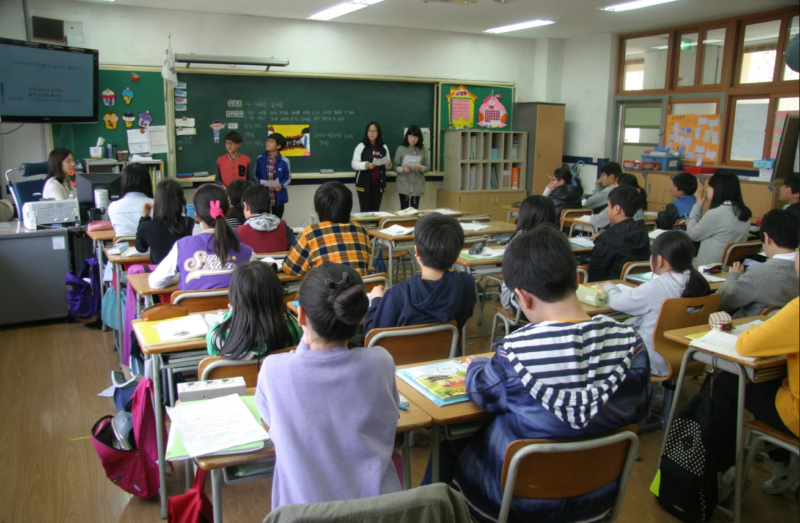
Entrance Exams for Schools in England
When applying to schools in England, various exams may be required depending on the school. Schools in England primarily want to assess students’ English language proficiency and academic skills and evaluate them accordingly. While many schools administer their own exams, some schools may also request the following exam results from students:
• IELTS UKVI Academic Exam: The IELTS (International English Language Testing System) is an internationally recognized English language proficiency exam for individuals who want to study or work in places where English is used as a communication language. Introduced by the University of Cambridge in 1989, the exam is now conducted in nearly 150 countries and accepted by many educational institutions worldwide. There are two types of IELTS exams: General and Academic. The IELTS UKVI Exam is required for individuals applying for a visa for education in the UK or United Kingdom. Unlike the standard IELTS exam, the IELTS UKVI Exam is conducted in monitored centers specified by the UK Government. The exam content is the same as the standard IELTS exam. Students applying for education purposes need to take the IELTS UKVI Academic Exam. For more details about the IELTS exam, click here.
• UKISET Exam: The UKISET (UK Independent School’s Entry Test) is an exam required by some British colleges for high school education to assess students’ suitability for the British education system. The exam tests both the student’s English language proficiency and academic competence.
• Cambridge Assessment English Exams: Cambridge Assessment English Exams are internationally recognized English assessment exams conducted in 130 different countries. For students seeking high school education abroad, Cambridge exams such as KET, PET, FCE, or CAE scores are generally required.
• Cognitive Abilities Test: The Cognitive Abilities Test (CAT4 Exam) aims to predict students’ reasoning and problem-solving abilities through verbal, quantitative, and non-verbal test elements. Similar to an IQ test, the Cognitive Abilities Test is used in many countries, including the UK, as part of high school applications.
• ELTIS Exam: The ELTIS (The English Language Test for International Students) exam is an internationally recognized test that measures students’ English listening and reading skills, primarily for students who want to pursue high school education in the United States. The ELTIS exam, which may also be required for schools in England, Canada, and Ireland, assesses students’ potential to grasp English lessons. In addition to the ELTIS exam, a speaking test is also conducted for entry into schools in England.
• SLEP Exam: The Secondary Level English Proficiency Test (SLEP Exam) tests students’ English reading, listening, speaking, and writing skills. The SLEP Exam may be required for students wishing to pursue high school education in England, America, or Canada.
• PLEP Exam: The Pre-Intermediate Level English Proficiency Test (PLEP Exam) is a test primarily conducted for students wishing to pursue high school education in Europe to measure their English language proficiency. The PLEP Exam aims to assess students’ English proficiency, improve their exam skills, and prepare them for future English exams. This exam is generally requested by schools in England, Scotland, Switzerland, and France. Outside of Europe, Canadian, American, and Australian schools may also request this exam.
Documents Required for Applying to Schools in England:
1. Passport
2. Passport-sized Photograph
3. Transcripts for at least the last 3 years
4. Language proficiency exam results, if any
5. Statement of Purpose
6. Reference letters from teachers
7. Awards and certificates, if any
Top Schools in England
England is always at the forefront among countries with the most prestigious and successful schools.
According to the 2020 university placement results, the most successful schools in England are as follows. The list excludes single-sex or non-residential colleges.
Top 20 schools in England based on A Level results (boarding & coeducational):
1. Oxford International College
2. Cardiff Sixth Form College
3. Westminster School
4. Concord College
5. Ruthin School
6. Brighton College
7. St Michael’s School – Llanelli
8. Abbey College Cambridge
9. Epsom College
10. Charterhouse School
11. Rugby School
12. City of London Freemen’s School
13. Caterham School
14. Wellington College
15. Bromsgrove School
16. Ardingly College
17. Hurtwood House
18. King’s School – Canterbury
19. Queen Ethelburga’s College
20. Clifton College
Top 20 schools in England based on IB results (boarding & coeducational schools):
1. Sevenoaks School
2. Wellington College
3. Ardingly College
4. Bromsgrove School
5. Haileybury Independent School
6. St Clare’s Oxford
7. Fettes College
8. Oakham School
9. Malvern College
10. Stonyhurst College
11. Bradfield College
12. Taunton School
13. TASIS
14. ACS Cobham
15. Rossall School
16. Felsted School
17. Bryanston School
18. King William’s College
19. Windermere School
20. Box Hill School
School Fees in England
School fees in England vary

Education in England: Equivalency and Visa Procedures
All schools in England receive equivalence from the Ministry of National Education. To obtain equivalence for your education in Turkey, you need to apply to the Ministry of National Education Equivalency Office with the required application forms and documents. Additionally, equivalence procedures can also be conducted through the Ministry of National Education’s e-equivalency system.
For Ministry of National Education Equivalency Procedures, you can use the following contact channels:
To access the E-Equivalency System, click here.
Ministry of National Education Equivalency Office Phone Number: 0 (312) 413 43 74
Ministry of National Education Equivalency Office Email Address: ttkb_denklik@meb.gov.tr
Visa Procedures for High School Education in England
Students who will study in high schools in England must apply for the UK Academic Student Visa. The UK Academic Student visa is known as the “Tier 4 Visa,” and with the update of the UK’s European Union status, its name has changed to “Student Route Visa” as of July 1, 2021.
In UK academic student visa applications, official documents proving the student’s academic and language skills (transcript, language proficiency certificate, etc.), the CAS (Confirmation of Acceptance for Studies) document from the enrolled high school, and documents proving the student’s family’s financial capability are the key documents determining the visa result.
Required Documents for UK Academic Visa (Student Route / Tier 4 Visa) Application:
Fully completed visa application form
IHS (Immigration Health Surcharge) payment receipt (mandatory insurance)
Valid passport and any previous passports
Population Registration Sample
CAS Document (Invitation from the educational institution in the UK)
Academic documents / language certificates specified in the CAS document (transcripts, IELTS certificate, etc.)
Financial documents
– Those who have paid at least 1 year of tuition and accommodation fees before the visa application do not need to show any additional financial resources if they can prove this payment on the CAS document.
– Those who want to make payments after the visa approval must keep the tuition and accommodation fees in their bank accounts for at least 28 days before the visa application and must apply with bank documents proving this period and amount. The bank account must be in the name of the student, parent, or guardian, and accounts in other names or companies are not accepted. A sponsorship letter should also be included with the bank documents.
*** In addition to the documents mentioned above, different documents may be requested. Global Education Consultancy provides visa consultancy services to its students, preparing the necessary document list specifically for each individual and following up with a professional team from the application stage to the result stage.
High School Education in England with Global Education Consultancy
As one of the oldest and most established companies in the field of overseas education consultancy in Turkey, Global Education Consultancy has been experiencing the pride of being a growing family that directs the future of hundreds of students for over 30 years from 1989 to today with its accumulated knowledge and experience. Thanks to its knowledge, it provides support to its students on many issues such as which schools they will be accepted to, what they should pay attention to during the application, and the preparation & control stages of their documents. The services we offer to our students are as follows:
Detailed research on high schools that match our student’s academic qualifications, budget, and interests
Contacting the school for additional information before the official application and providing the necessary information
Sending the student the academic document list required for official application
Guidance and support for the student regarding documents (e.g., Statement of Purpose, References, or additional support for foreign language exams)
Checking the compatibility of your academic documents with the high school you are applying to
Submitting application documents to the relevant high school
Following up on the application
Checking and delivering acceptance letters from high school/s to our student/parent
Completion of final acceptance procedures (payment of deposit, pre-reservation of accommodation, etc.)
Obtaining a visa acceptance letter from the high school
Sending the necessary document list to the student for the visa application
Visa application and follow-up
Providing necessary support to our student in the post-visa stages (health insurance, accommodation, plane ticket, airport pick-up, etc.)
Providing uninterrupted 24/7 support to our student in case of need or emergencies while the program continues in the UK
England High Schools



